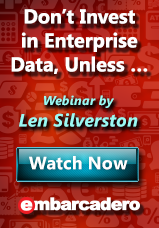
- Understand motivations.
- Have a shared vision.
- Develop trust.
- Effectively manage conflict.
- Understand motivations. As demonstrated in our ‘once upon a time’ story, one of the key motivations that can be a problem is one of being ‘right’[2], versus appreciating perspectives. Universal Data Models can provide alternate perspectives and sometimes, they can be used to assess if there are fixed, narrow, ‘right’ ways of thinking or if modelers are open to other outside perspectives. By providing templates, UDMs can sometimes clarify if modelers are attached to a specific way of modeling (‘their’ way being the right way). There is also a danger that modelers will view the Universal Data Models as ‘right’ and be too evangelistic. The UDMs do not represent the ‘right’ models because in my opinion, there is no such thing. Instead, they provide various suggestions about ways to effectively model that have worked in other environments.
- Have a shared vision. Universal Data Models can help with a piece of a shared vision by showing patterns for how subject data areas, as well as data model constructs within these areas, can be laid out. We encourage people to use Universal Data Models not as the final solution but as input that can help formulate how data may be classified and modeled, and then we use Universal Patterns as a mechanism for custom tailoring these models, for example, making them either more specific or more generalized as needed.
- Develop trust. Having a library of re-usable models and templates that have a track history of working in various organizations can often help develop trust. And knowing that you don’t have to reinvent the wheel can encourage better collaboration on refining the models.
- Manage conflict. Using a third-party set of models can often be a way to reduce disagreements among data modelers. Rather than having to decide between one modeler’s choice versus another modeler’s choice, referring to an independent option can sometimes simplify the situation. One of our clients said that the greatest value offered by Universal Data Models is to help politically by having a third-party solution available that often resulted in not picking specific modeling solutions offered by the various modelers, thereby helping to resolve conflicts.
[1] One source that addresses these principles fully is Chapter 10, ‘Socializing the Patterns’ of The Data Model Resource Book, Vol. 3: Universal Patterns for Data Modeling, By Len Silverston and Paul Agnew, Wiley Computer Publishing, January 2009.
For more information on Universal Data Models, watch Len Silverston's videos.

Len Silverston is a best-selling author, consultant, and a fun and top-rated speaker in the field of data modeling, data governance, as well as human behavior in the data management industry, where he has pioneered new approaches to effectively tackle enterprise data management. With over 30 years of experience as a data management consultant helping organizations world-wide, he is well known for his work on "Universal Data Models", which are described in his The Data Model Resource Book series.